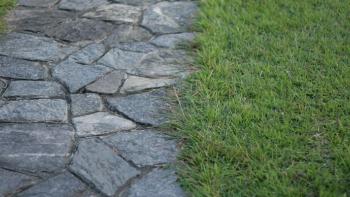Leveling the playing field
Not so long ago, Habitat for Humanity of Greater Charlottesville would have just built the soccer field for the community wanting a safe place for kids to play. These are different times at the central Virginia Habitat.
The soccer field still got built. But the community, not Habitat Charlottesville, took charge of the design and installation and continues to oversee the field’s long-term maintenance.
“We work side by side with the residents, cheerleading and facilitating,” says Ryan Jacoby, chief operating officer of Habitat Charlottesville. “But this project sinks or swims with them.”
The passing of responsibility is not about passing the buck. It is a shift in the way Habitat Charlottesville is approaching its work, a way designed to unearth what residents have to offer and to stay true to Habitat’s tenet of partnership.
“It allows individuals and groups to understand that, both individually and collectively, they have the assets and the skills to achieve anything they aspire to,” Jacoby says, “whether that is homeownership or installing a soccer field.”
The shift is energizing Habitat Charlottesville, which has an ambitious agenda to create self-sufficient communities without displacing long-time, low-income residents. “Those residents are being welcomed as village elders,” says Dan Rosensweig, Habitat Charlottesville’s president and chief executive officer. “They have stories. They have knowledge. And at the end of the day, we don’t have all the answers.”
Building from a position of strength sounds simple enough. It isn’t, Habitat Charlottesville recognizes. To learn how to better adapt to this approach, a dozen staff, board members and residents flew earlier this year to Houston to observe Neighborhood Centers Inc. in action. The largest charitable organization in Texas has garnered national attention for its pioneering community development work, helping neighborhoods identify and build on their resources, achievements and hopes — not their degree of “brokenness.”
“The old question is, ‘What is wrong with you and what do you need?’ The new question is, ‘What do you have and what do you aspire to?’” says Angela Blanchard, Neighborhood Centers Inc. president and CEO. Habitat Charlottesville first contacted Blanchard after viewing her TEDxHouston talk, “The First New Question.”
In April, Blanchard traveled to Charlottesville to meet with residents, participate in strategic planning with Habitat Charlottesville’s board and staff, and lead a workshop of more than 150 local nonprofit, government and community leaders.
The event was part of Habitat Charlottesville’s continuing effort to serve more families through advocacy — working with the community to change perceptions and gain momentum for sounder housing policy. Finding affordable housing is a challenge in Charlottesville, home to the University of Virginia and a very desirable place to live.
“Advocacy is an important pillar of our strategy to increase community impact, inspire fruitful collaboration, and help ensure that Charlottesville can realize its potential as a place where all its citizens can thrive and achieve their dreams,” Rosensweig says.
During his Houston visit, Rosensweig was struck by how residents responded when asked Blanchard’s “new question.”
“People who are low-income tend to think of themselves as recipients and beneficiaries,” Rosensweig says.
“When you reorient people to what they have to offer, they see themselves as partners. That is essentially what Habitat is all about. We don’t do things for people. We do them with people.— Dan Rosenweig, Habitat Charlottesville
Back to that soccer field. When the residents needed dirt, Habitat Charlottesville could have picked up the phone and gotten it delivered in no time. “Historically, I would have made that call,” Jacoby says. Instead, he passed his contacts along to the residents.
Today, the soccer field is getting so much use from neighborhood kids that the new grass is struggling to come in. Not the worst problem to have, Habitat Charlottesville says. And the field is a source of pride for the community, a symbol of partnership and a central gathering spot for generations to come together to play.
